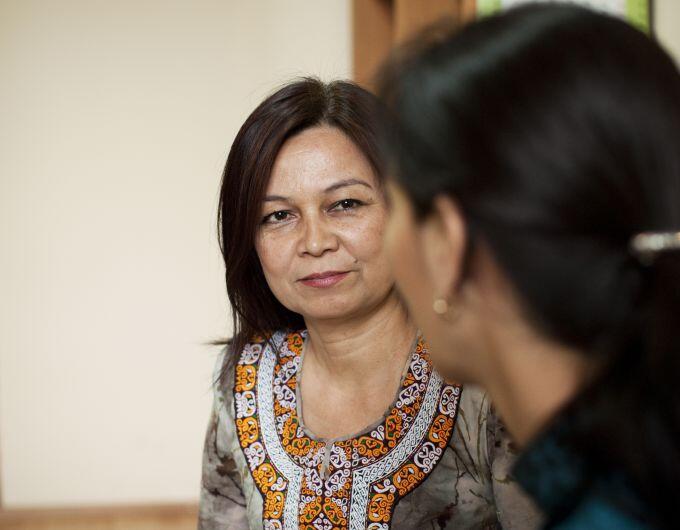The Government of Turkmenistan is stepping up efforts in improving adolescents’ reproductive health through extending access of young people to reproductive health information, counselling services and contraceptives, as per the Order of the Ministry of Health and Medical Industry of Turkmenistan adopted this month. The policy document outlines preventive measures, introduces data collection tools and new services tailored for special needs of boys and girls. Informing the young people on the new existing services through the school visits is an important part of the new policy document.
This year the Government of Turkmenistan has assumed the financial responsibility for the supply of contraceptives, as UNFPA phased out its assistance for procuring reproductive health commodities due to the upper-middle income level status of the country. Since 2017, the Government of Turkmenistan will cover the needs in modern methods of contraception of the vulnerable population. The newly adopted Order now includes the adolescents aged 15-19 to the list of criteria for identifying vulnerability.
UNFPA's work on improving the reproductive health is a key effort towards achieving Sustainable Development Goal 3, which calls for good health and well-being including for young people and adolescents. It also advances Goal 5, which calls for gender equality, as well as other goals included in the 2030 Agenda.
UNFPA works with governments, other UN agencies, civil society and donors to develop comprehensive efforts to ensure universal access to reproductive health care for women, men and adolescents. UNFPA advocates for integrating the delivery of these services into primary health care, so it is as accessible as possible.
“According to the national research, it is estimated that for up to 60 percent of infertility among couples, the problem lies in the male partner. And most of the causes are rooted in adolescence,” said Dr. Kemal Goshliyev, UNFPA National Programme Officer on Reproductive Health in Turkmenistan. “The policy document, developed with UNFPA support relied on the findings and recommendations of the cost-benefit analysis on providing free or subsidized contraceptives for young women in Kazakhstan, which showed that improving access to free contraceptives for adolescents and young people creates cost savings for the Healthcare system.”
***
For additional information, please contact
Bayramgul Garabayeva, UNFPA Assistant Representative
Ene Tuyliyeva, Advocacy Communication Associate
Tel: 488325
Web: turkmenistan.unfpa.org, tm.one.un.org


